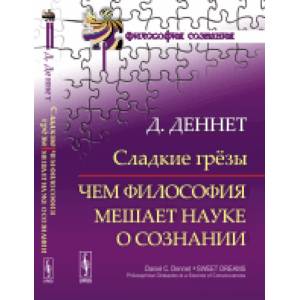Sweet Dreams: How Does Philosophy Interfere with the Science of Consciousness
Please sign in so that we can notify you about a reply
"Sweet dreams" is one of the most important works about the consciousness that have been published in recent years. Its author, the prominent American philosopher Daniel Dennet, was widely recognized back in 1991, after the publication of labor “explained consciousness”, which actually turned the scientific study of consciousness in the field of “stormy battles” of rival theories. In "sweet dreams", Dennet once again reviews and updates his concept, given the main empirical achievements in this area recently the latest theoretical problems. In the “explained consciousness” Dennet proposed replacing the popular but insolvent model of consciousness as a show playing out in the brain (model of the Cartesian Theater), with a model of multiple sketches, according to which it is a kind of mental software that rebels functional architecture of the brain. Accepting to calculate the achievement of psychology, cognitive neuronaus and development in the field of artificial intelligence, in "sweet dreams" Dennet also changes this model to a new one - the model of "glory in the brain", for which everything unconscious, “wants” to become conscious. Turning away from this theory, the author unfolds a study of various issues that "continue to blow up the field of" philosophical discussions. With his inherent clarity and liveliness, Dennet illustrates his arguments with many vivid examples. He writes about the “flair on the zombie”, which distorts many theoretical constructions of philosophers and scientists, and protects heterophenology (the method of constructing objective science of consciousness developed by him) from incessant attacks and objections. Frank Jackson"s old mental experiment on Mary, who studies the color, receives a new refutation in the mental experiment about Robomeri, and the discussion of the famous card focus "Title deck" is designed to show that the difficult problem of consciousness, formulated by David Chalmers, is perhaps only a fiction of poorly working The imagination of theorists. Dennet solves all these complex problems in a brilliant ironic form, once again proving his outstanding polemic skill
Author:
Author:Dennet D.
Cover:
Cover:Hard
Category:
- Category:Politics & Social Science
- Category:Phylosophy
- Category:Reference books
Publication language:
Publication Language:Russian
Paper:
Paper:Offset
Age restrictions:
Age restrictions:16+
ISBN:
ISBN:978-5-9710-3776-7
No reviews found
